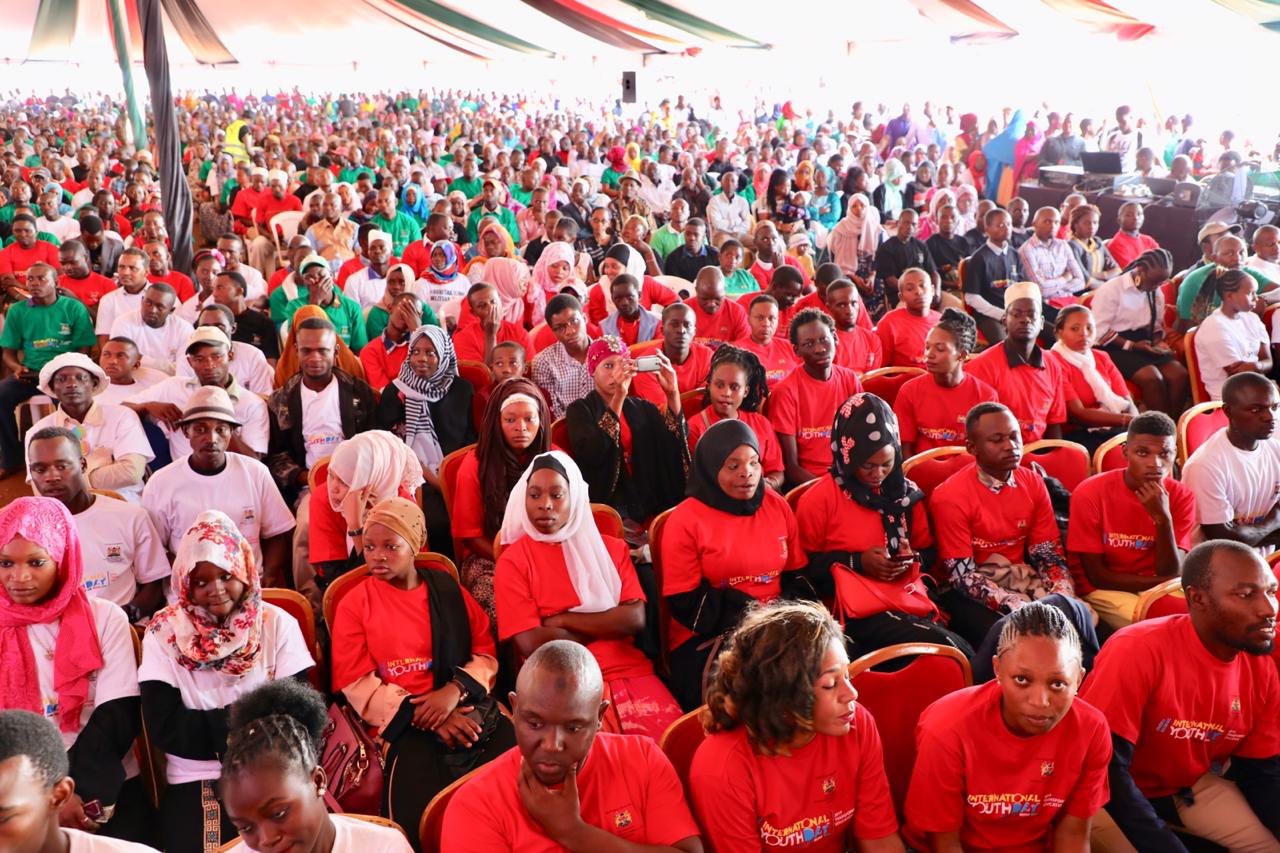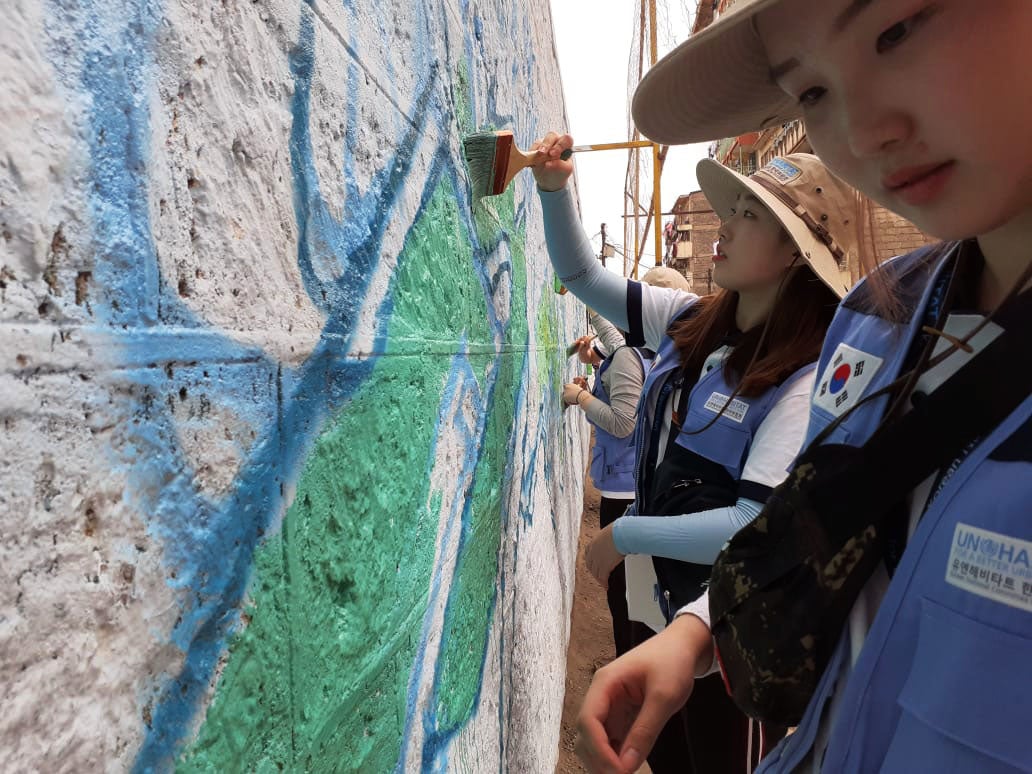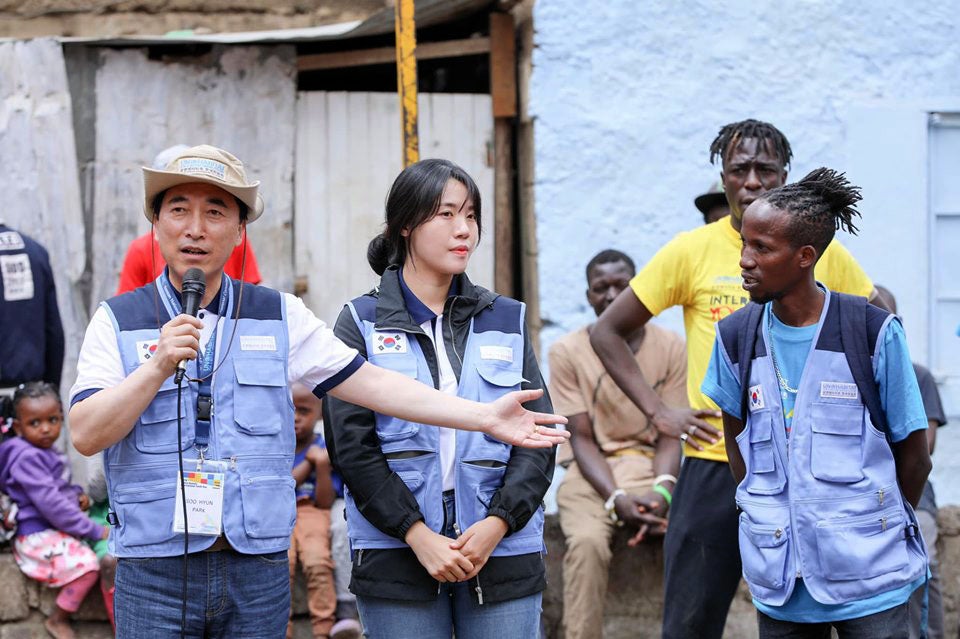Matuga, Kwale County, Kenya, 12 August 2019 – To culminate a week-long series of events highlighting the role of youth in Kenya, the President of Kenya, Uhuru Kenyatta, invited the Executive Director of UN-Habitat, Ms. Maimunah Mohd Sharif, to Kwale on the east coast of Kenya to formally open a Youth Empowerment Centre on International Youth Day.
At the festive event, Ms. Sharif commended the Government of Kenya on its leading role on youth issues globally, and more specifically President Kenyatta as a UN Global Champion of Youth, noting, “As United Nations agencies in Nairobi, we find his leadership and support crucial. This gives us the impetus to deliver more for the youth.”
The international theme for this years International Youth Day is “Transforming Education”, and it is rooted in Sustainable Development Goal (SDG) 4. This seeks to ensure inclusive, and equitable quality education and life long learning opportunities. The UN sees education as a ‘development multiplier’ playing a pivotal role in accelerating progress across all 17 SDGs, from it poverty eradication and gender equality, to reduced inequalities and building peaceful societies.
After formally opening the Matuga Youth Empowerment Centre (YEC), Ms. Sharif praised the Government of Kenya for its goal to set up and refurbish 152 YECs across the country, saying, “Our shared experience in establishing and operating the One-Stop Youth Resource Centres lay the foundation for closer collaboration between UN-Habitat and the Kenyan Government.”
In launching the Matuga YEC, the head of the Ministry of Public Service, Youth, and Gender Margaret Kobia stated, “We will establish and operationalise 290 YECs across the country. 152 are in the process of refurbishment. This week, we will launch 12 Centres that will provide sports, guidance and counselling; and ICT training services.”
President of Kenya, Uhuru Kenyatta, in his statement to mark the day, emphasized, “We expect each and every young person in the country to be able to utilize the services available within these Centres to access online opportunities, acquire new skills and competencies. Furthermore, the services provided in these Centres will enable the youth to build collaborative networks with like-minded enterprising youth in Kenya and internationally, receive training and mentorship, to mention, but a few.”

The One Stop programme falls under UN-Habitat’s mandate to reduced spatial inequality and poverty in communities through the provision of safe and accessible urban public spaces, especially for children and youth. Public spaces for youth often can act as a space for education and training, which prepares youth for the job market.
There are more people under the age of 25 today than ever, totalling nearly three billion or almost half of the total global population; 1.2 billion of that total are between the age of 15 and. These youth live, by and large, in cities and towns; the cities of the developing world account for over 90% of the world’s urban growth and youth account for a large percentage of those inhabitants. Youth should be part of building the economies of cities, this is why UN-Habitat works to improve employability and entrepreneurship among young people.
The Government of Kenya’s Youth Empowerment Centres are based on UN-Habitat’s “One Stop Youth Centre” concept, underpinned by an integrated and inclusive approach to youth development. UN-Habitat in cooperation with local government created One-Stop Youth Centres in urban settings. The first Centre was established in Nairobi in 2003 and now they are running in eight cities across five countries. The centres provide youth with safe spaces where they can meet and access information and resources critical to youth-led development. Although each Centre is unique in the programmes it delivers, the main areas of focus include programmes related to the promotion of youth employment and entrepreneurship, arts and sports, skills training, mentorship and healthy lifestyles. The One Stops have been supported by the Government of Norway since their inception.
One Stop Youth Centre’s recognise youths as partners in the development process. They emphasize youth-owned and youth-led processes that strengthen the youth’s capacity to act as social, economic and political actors in their communities. There are over 13,000 youth-led organizations in Kenya, providing a range of services focused on bettering the lives of youth and their communities.
The Youth Empowerment Centre’s and One Stop Youth Centre model chime with this year’s International Youth Day theme that highlights efforts by youth themselves to make education more inclusive and accessible. António Guterres, the Secretary-General of the United Nations, highlighted, “Today, we celebrate the young people, youth-led organizations, Governments and others who are working to transform education and uplift young people everywhere.”

UN-Habitat Youth also held these events:
On Friday 9 August, over 1,000 young people attended a youth conference co-coordinated by the United Nations agencies in Nairobi and the State Department for Youth Affairs. At this event former Prime Minister, Rt Hon. Raila Odinga and two Cabinet Secretaries, Prof. Margaret Kobia and Hon. Sicily Kariuki, heard the youth express their willingness to be more closely engaged.
On Saturday 10 August, UN-Habitat partnered with the Korean National Committee for UN-Habitat and the Mathare Environmental One Stop Centre to host an International Youth Day training programme for Kenyan and Korean youth in Mlango Kubwa. 35 youth from Korea attended. They constructed recycled bricks out of plastic bottles sourced from the Mathare One Stop upcycling programme, inaugurated earlier this year by UN-Habitat Executive Director Maimunah Mohd Sharif. These bricks will be used to construct eco-friendly buildings in Mathare. They also created two huge murals at either end of the football pitch, with the design and painting of the murals facilitated by Grafitti Girls, and focused on the IYD theme of transformational education.
“Mathare Environmental is proud to host our Korean friends,” stated Isaac Muasa, co-ordinator of the Centre, “the recycled bricks and the murals will help beautify public spaces in Mathare which provide safe spaces for the children and youth living here. Over 70% of the population of Mathare is made up of people under the age of 30. Public space is critical to their health and well-being.”


Article: Aoibheann O'Sullivan & Douglas Ragan
Banner photo: UN-Habitat/Julius Mwelu
Video camera: Benedict Otieno
Video edit: Benedict Otieno & Aoibheann O'Sullivan